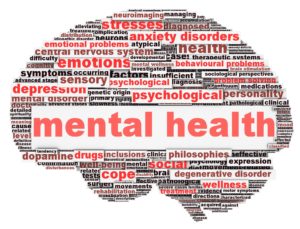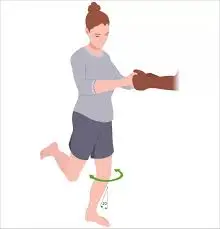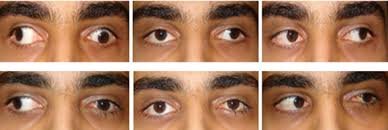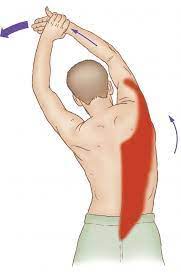Physiotherapy Treatment in Psychological Condition:
Following List Of Psychological Condition Get Benefited Through Physiotherapy Treatment :
- Mental disorder :
- Attention deficit hyperactivity disorder
- Anxiety
- Bipolar disorder
- Obsessive- compulsive disorder
- Schizophrenia
- Mood disorder
- Psychosis
- Post-traumatic stress disorder
- Major depressive disorder
- Neurological disorder
- Genetic disorder
- Developmental disorder
- Alzheimer’s disease
- Borderline personality disorder
- Anorexia nervous
- Panic disorder
- Social anxiety disorder
- Insomnia
- Autism
- Delusional disorder
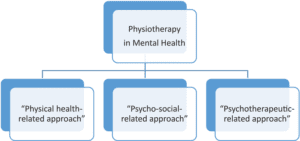
1) Mental disorder :
A mental disorder, also called a mental illness or psychiatric disorder, is a behavioral or mental pattern that causes significant distress or impairment of personal functioning.
Physiotherapy reduces anxiety, depression, and negative thoughts
physiotherapists have the skills required to assess and treat physical conditions and pain.
Physiotherapists offer hands-on and hands-off treatment services including manual therapy, massage, dry needling and joint mobilization techniques, exercise, stretching and education that can result in improved physical well-being outcomes for patients that carries over to improvements in their mental health.
(2) Attention deficit hyperactivity disorder :
A chronic condition including attention difficulty, hyperactivity and impulsiveness.
Symptoms include limited attention and hyperactivity.
Aerobic exercise :Aerobic exercise creates new pathways in your brain.
Martial arts: Experts say the more complex your exercise is, the better for your brain.
Following Common Exercise Patient Get Benefited Exercise :
- Focus and concentration
- Balance
- Timing
- Memory
- Consequences of actions
- Fine motor skills
- Gymnastics
- Yoga
- Rock climbing
- Strength training :
- Lunges
- Squats
- Pushups
- Pull-ups
- Weightlifting

(3) Anxiety: Anxiety is an emotion characterized by feelings of tension, worried thoughts and physical changes like increased blood pressure.
They are a group of mental illnesses, and the distress.
Physiotherapy : This includes increased heart rate, perspiration and respiration.
Aerobic exercise includes cycling, running, hiking, swimming. ( 20-30min)
Relaxation.
Yoga.
(4) Bipolar disorder :
Bipolar disorders, also known as manic-depressive illness, are a group of brain disorders that cause unusual shifts in
Mood, energy, and ability to function..
It is characterized by severe mood shifts or a mix of depression and high-energy phases known as manic episodes.
Physiotherapy :Aerobic and strength exercises, relaxation training and/or basic body awareness exercises.
Physical therapists may assist these patients with the various complications of the disorder.
Physical therapists can provide these patients with education and various exercise programs to assist them in achieving optimum quality of life.
(5) Obsessive- compulsive disorder :
Obsessive compulsive disorder (OCD) is a common mental health condition in which a person has obsessive thoughts and compulsive behaviors.
An obsession is an unwanted and unpleasant thought, image or urge that repeatedly enters your mind.
A compulsion is a repetitive behaviour or mental act that you feel you need to carry out to try to temporarily
relieve the unpleasant feelings brought on by the obsessive thought..
(6) Schizophrenia :
Schizophrenia is a chronic and severe mental disorder that affects how a person thinks, feels, and behaves.
People with schizophrenia may seem like they have lost touch with reality.
physiotherapy : Yoga therapy. it can help manage any co-morbidities, side effects of medications, or help deal with the physical decline in function.
Education on diet, exercise, and skin checks would be very beneficial to these people.
(7) Mood disorder : a psychological disorder characterized by the elevation or lowering of a person’s mood, such as depression or bipolar disorder.
: any of several psychological disorders characterized by abnormalities of emotional state and including especially major depressive disorder, dysthymia, and bipolar disorder.
physiotherapy : Exercise has been shown to benefit patients with mild to moderate mood disorder.yoga may result in a small amount of weight loss.
aerobic exercise, strength exercises, relaxation training and/or basic body awareness exercises.
(8) Psychosis : a severe mental disorder in which thought and emotions are so impaired that contact is lost with external reality.A person may experience hallucinations and delusions.
physiotherapy : Communication, contribute to understanding of the communication challenges entailed in goal-setting.
relaxation, yoga therapy.
analyse in detail therapists’ and patients’ communication practices during physiotherapy goal-setting.
(9) Post-traumatic stress disorder : traumatic events that may result in a wide range of mental and physical health consequences. Post-disaster PTSD is associated with a range of correlates including sociodemographic and background factors, event exposure characteristics, social support factors and personality traits.
counseling and mental support.
physiotherapy : Exercise and activity – including range-of-movement exercises, postural exercises, and strengthening and motor control treatment.
vestibular exercises.
